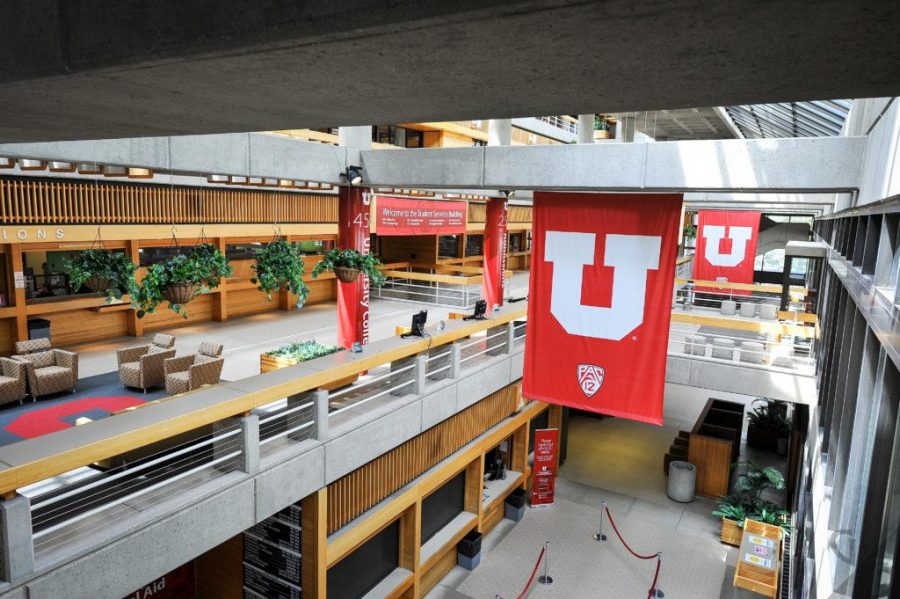Mandatory Academic Advising for U Freshmen Brings Mixed Reactions
The Student Services Building on the University of Utah Campus, where many advising appointments are held. Chronicle archives.
October 24, 2019
As the fall semester of 2019 gets into full swing, the freshmen around campus are signing up for and attending their mandatory advising appointment. This advising meeting must be done before the first years can register for spring semester classes and is meant to serve as a checkpoint in their first semester and a follow up after orientation.
The key purpose of this requirement is for students to contact and establish a relationship with their advisor. In the meetings, students and advisors run a degree audit report, explore general education requirements and build a schedule for the next semester. The advisors can also serve to connect students with the academic resources available to them. After they have declared a major, students meet with advisors specific to their course of study.
Advisors are trained when they are hired as staff and given periodic instruction throughout the year. These training sessions mainly consist of different possible scenarios that could arise during the meetings and information on learning outcomes and objectives.
If a freshman attends their meetings before Nov. 8 they can get priority registration, which opens Nov. 11 at 7 a.m. According to the latest Academic Advising report, in 2018 85% of freshmen took advantage of this and qualified for early advising and priority registration.
The meetings are scheduled to be 30 minutes long, and the advisors firmly believe in their purpose and effectiveness.
“My favorite appointments are the first-year mandatory,” said Stephanie Krusell, an academic advisor for communications majors. “As far as I can tell, students definitely feel happy that they came.”
Despite the optimism of the advisors, the student’s reaction to these meetings is less positive. A general consensus among upperclassman is that they found their meetings to be pointless and not very helpful.
However, among the current first years, the impressions of the meetings were more mixed. Some found the meetings informative, while others left even more confused than when they entered.
“The meeting was very short. The advisor was really reassuring and nice, but I did not get much out of the meeting,” said undeclared first-year Ruby Bates.
On the other hand, another undeclared freshman considering a major in international studies found her meeting to be very helpful. “I thought they were pretty knowledgeable considering they were just general academic advisors, not major-specific,” she said.
Following advising appointments, students are encouraged to fill out a brief survey about their experience.
While first-years are required to get in touch with their advisors, transfer students are not. Instead, the transfer students are considered finished after they attend an orientation. However, according to the annual report, this year they are assessing the possibility of adding mandatory advising for transfer students.
Tanner McCann, a transfer from Limestone College, plans to use advising even though it is not required and thinks it could be very useful. “It makes everything a lot less stressful, and they can tell you exactly what you need to do in your situation, rather than you just guessing what you need to take in when,” she said.








